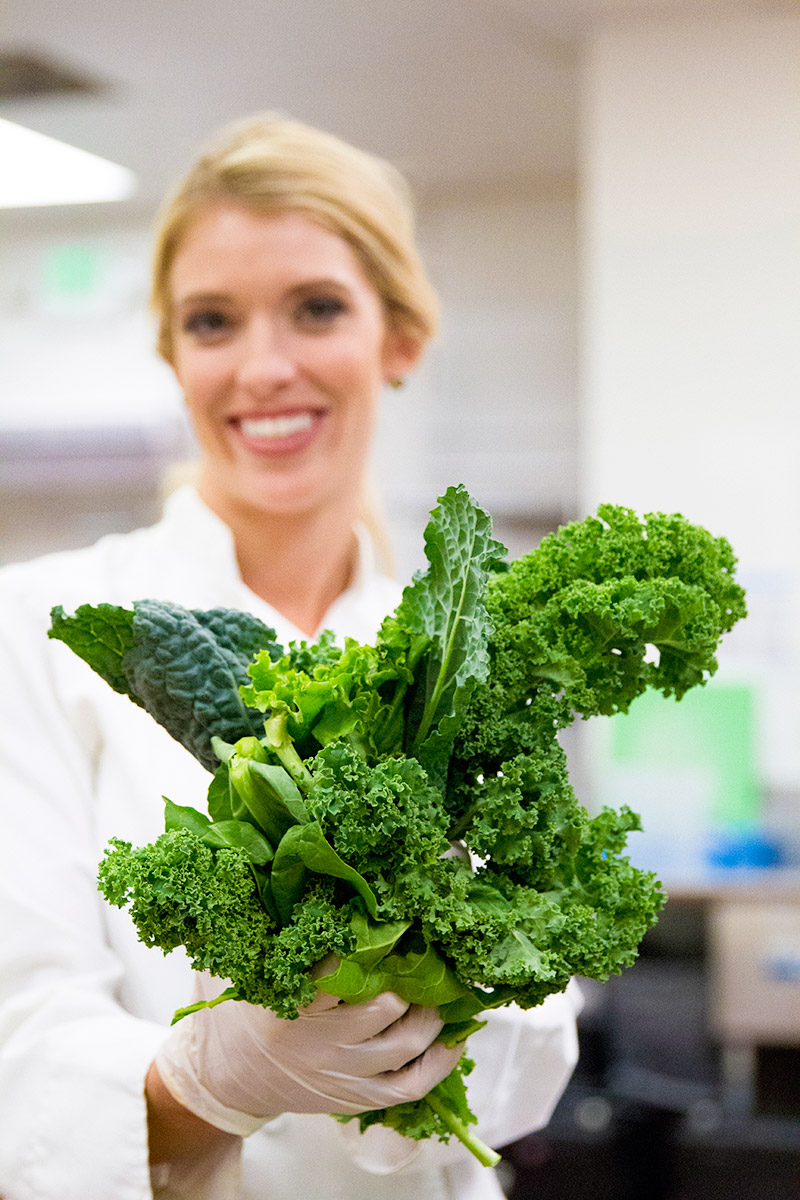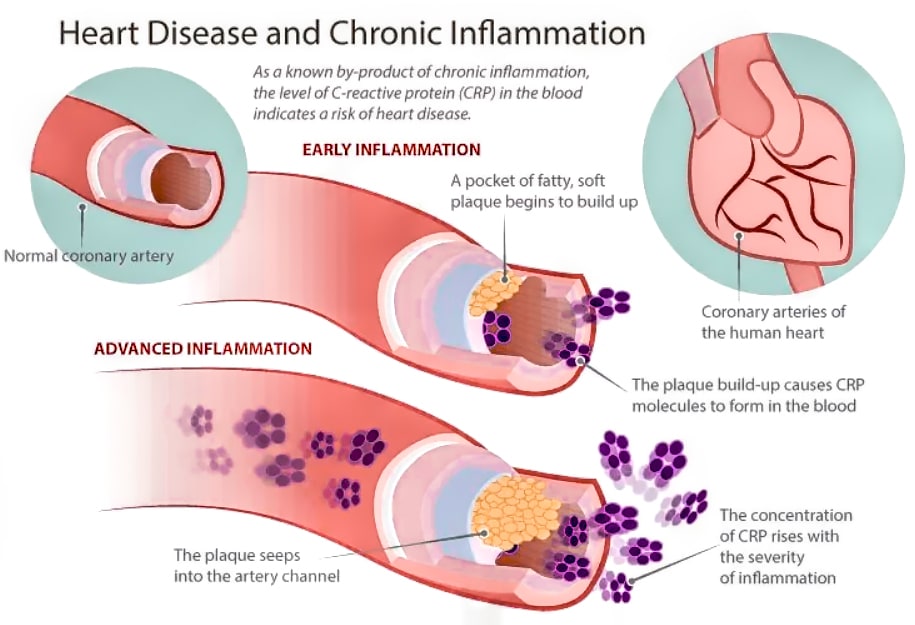How many times have you heard “FOLLOW THE SCIENCE” over the last two years? Well, there’s no debating that dark, leafy green veggies are some of the most health-promoting nutrient dense-foods on Earth. In this article, certified nutritional therapist, Veronica Wheat Kress, aka Chef V, lists 5 research-backed ways that dark leafy greens improve gut health. All disease starts in the gut. So make sure you’re taking care of your digestive system by consuming dark, leafy greens every day. Not getting enough greens? (DO THIS.)
I’m probably not rocking your world by telling you this news: dark, leafy green veggies are the best and most affordable superfoods on the planet. But what you probably didn’t know about my fave greens are how they specifically help improve gut health. So let’s dive right in.
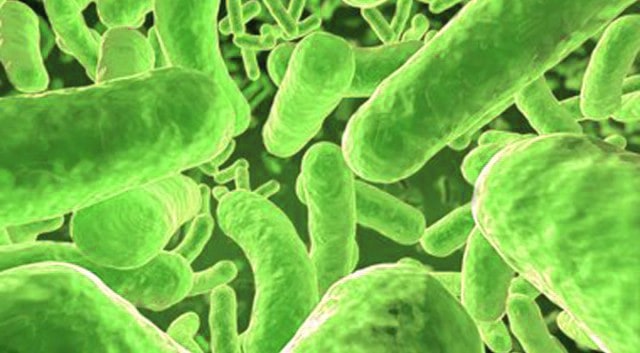
#1: Contains Sulfoquinovose
Last year, a team of researchers in Austria were the first ones to discover how bacteria in the gut process a sugar found in dark, leafy greens called sulfoquinovose. Nutritional hipsters like myself call it “SQ.”
SQ contains sulfur. But it’s not the same as the rotten-egg sulfur smell you’re probably thinking of. And even though it’s a sugar, SQ doesn’t act in the gut the same way sugar does. Sugar—I’m talking about the kind in white table sugar packets—feeds a large number of different kinds of bacteria in the gut. But SQ only feeds certain bacterial species that are found in healthy people.
And when these healthy bacteria digest SQ, an energy source for other friendly bacteria is formed. Evidently, your harmful bacteria don’t want to have anything to do with dark, leafy greens.
So the more dark, leafy greens you consume, the more SQ your gut produces. This causes the good guys in your gut to multiply while kicking out the bad party guests.
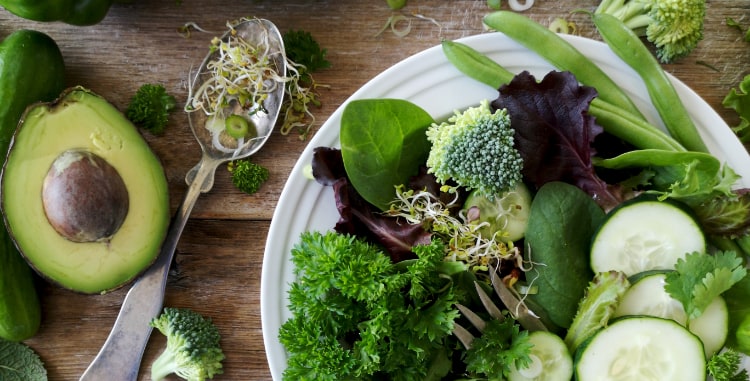
#2: Produces Short-Chain Fatty Acids
This kind of relates to SQ, but I’m about to get a little gross here. You see, when you consume dark, leafy greens, your body can’t digest some of the fiber. But your friendly bacteria can in your colon. And when the bacteria eats the fiber, it produces short-chain fatty acids (SCFAs).
SCFAs are basically the poop of your gut bacteria. You thought probiotics were vital for great gut health? Well, they are. But it’s actually the SCFAs that provide us with so many health benefits.
For instance, SFCAs act like fertilizer for the cells that line the mucous lining of the small intestinal barrier. This prevents your food from leaking out into the bloodstream.
It’s pretty creepy to think that the more bacterial poop you have in your gut, the better your health. But it’s true. SCFAs improve communication with your cells. And when your cells are more communicative, your immune function, mood and other systems improve.
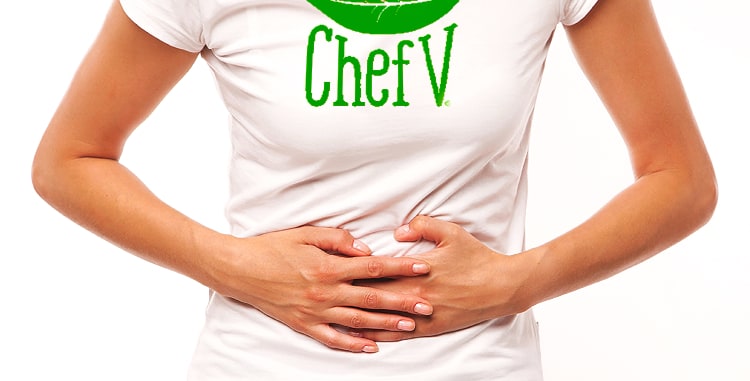
#3: Decreases Methane
For people with digestive problems like gas and bloating, there is usually more methane-producing bacteria in the gut. So if good bacteria poops short-chain fatty acids, harmful bacteria has stinky methane gas.
Most of us only associate methane gas with cows. (Climate change has brought that to our attention.) But eating unhealthy food also causes the release of methane albeit internally in your gut.
#4: Lowers Inflammation
Dark leafy greens contain another sulfur compound called sulforaphane. Sulforaphane and other antioxidants like quercetin (which has received a lot of attention over the last couple years because of a certain worldwide virus) are inflammation fighters.
People with gut dysbiosis—too many harmful bacteria, not enough friendly ones—often have chronic inflammation in the bowel or elsewhere in the digestive tract.
By eating more dark, leafy greens, your body may develop with a more normal inflammatory response—including in the gut.
#5: Contains Cellulose
Like the walls that keep your home warm and cozy, plants have cell walls. These walls are made of sugar called cellulose. Because your digestive system can’t fully digest cellulose, it’s considered a fiber. Cellulose helps fertilize your good bacteria. It does this by increasing the amount of starch that gets fermented in the colon. This increases the amount of short-chain fatty acids (bacterial poop) that your good bacteria produce.
Dark, leafy greens aren’t just reservoirs of awesome nutrient density. Yes, they are chock full of vitamins, minerals and phytonutrients. But you could also say they are Mother Nature’s most awesome food for gut health.
And if you’re not eating enough of them, here’s the perfect solution.
